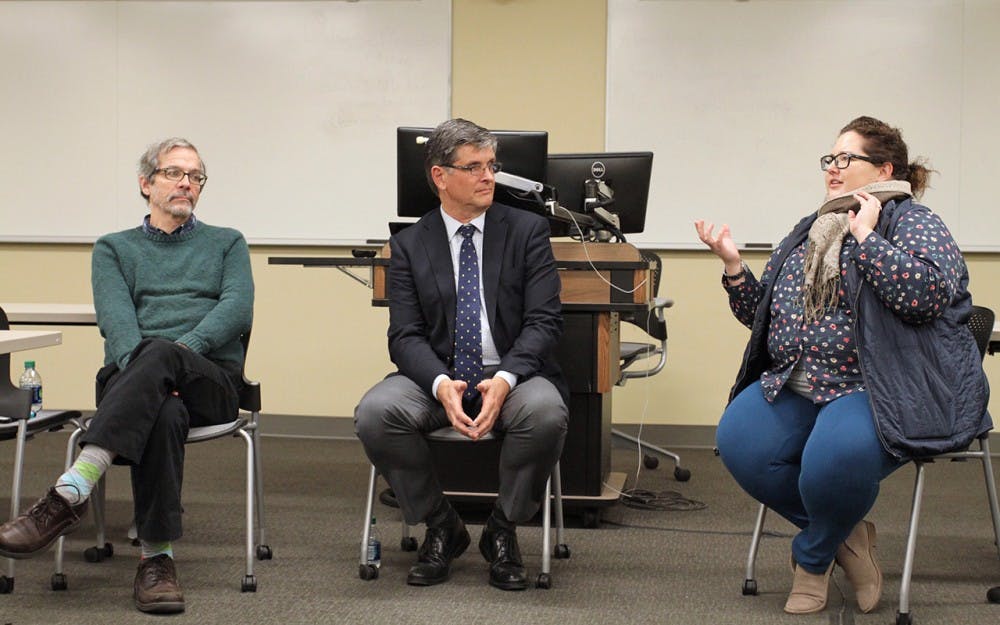A new debate-night drinking game was proposed Tuesday night in Hodge Hall. It involves stocking up on booze and taking a drink every time a candidate mentions arts or culture.
The result of this game is you will end up stone cold sober, professor and director of arts administration programs Michael Wilkerson said.
The “Arts in an Election Year” discussion covered a range of issues from President Obama’s health care law to net neutrality and their specific effects on the arts and artists. It was organized by the School of Public and Environmental Affairs Arts Administration Program and a fledgling group, the Undergraduate Student Art Managers.
Three faculty members ran the the discussion and offered their insight. They were Wilkerson; Michael Rushton, director of strategic planning and associate vice president for University Academic Affairs; and arts administration lecturer Ursula Kuhar.
A big issue the three covered was “Obamacare,” which many Republicans have opposed and many Democrats favor. Wilkerson specifically addressed how “Obamacare” has affected young musicians.
“It gives them the opportunity to be an artist without a full-time day job, which gives you more chance to make it as a professional artist,” Wilkerson said. “My hunch is it is a big deal. If they repeal it, they repeal asafety net for artists.”
Despite the usefulness of “Obamacare” for low-wage workers like musicians, Rushton said he thought the idea of getting rid of “Obamacare” was more a political strategy.
“Do I think ‘Obamacare’ really is going to be repealed?” Rushton said. “No. My guess it is a rhetorical strategy. It is too many people to say, ‘You don’t have health care any more.’ It’s not going to be repealed. It’s just too hard.”
Kuhar later brought up the issue of net neutrality. Net neutrality the government regulation the internet so providers don’t give faster or slower speeds to certain websites.
Wilkerson said without net neutrality people trying to access indie rock bands or the live stream of the IU Opera could be put in the slow lane.
“Artists are really afraid of this,” Wilkerson said. “This is a partisan issues. Republicans strongly believe it’s a huge overreach. Democrats say it’s just important as water and electricity.”
Kuhar said she sees the internet as a huge tool to see the arts, especially in rural areas or places that lack direct access to the arts.
“So many places are going to live streaming,” Kuhar said. “It’s how many people are consuming art — through streaming and live HD.”
Kuhar also said while net neutrality is a significant issue, it’s not really at the front of people’s minds. She said most people are focused on funding.
The group also spoke about visas and the challenges international artists face in trying to come to the United States to work and perform.
Visas are currently $300, can take anywhere from two to eight weeks to process, require extensive documentation and force artists to go to US consulates, Kuhar said.
However, this is not a policy issue on the minds of the U.S. constituency, Rushton said.
“Canada and Australia have done a lot more for highly skilled, qualified workers to come in,” Rushton said. “In the U.S., we’re not really facing that issue. No one wants to spend more money on that. Regardless of who wins election, it’s really unlikely to change because there’s not enough pressure to change.”




